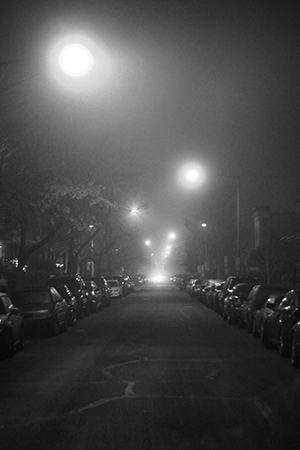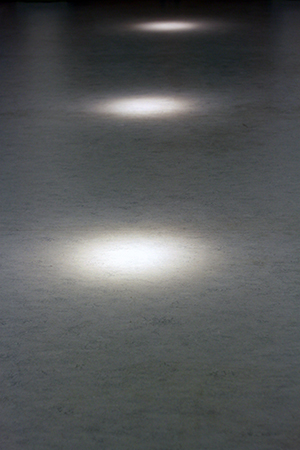Art thou in the darkness? Mind it not, for if thou dost it will feed thee more. But stand still, and act not, and wait in patience, till light arises out of darkness and leads thee. James Nayler (1659)
 When we are facing spiritual darkness and despair, there are several ways that we can choose to react. One coping mechanism is denial. When confronted with realities that are too difficult to bear, we shut them out. We look away from the truth of our lives, and do our best to carry on as if everything were normal. Unfortunately, this veneer of normalcy is a lie. Our denial does not keep the darkness at bay, it merely covers it with another layer of untruth. The damage continues to be done, even if we refuse to see it.
When we are facing spiritual darkness and despair, there are several ways that we can choose to react. One coping mechanism is denial. When confronted with realities that are too difficult to bear, we shut them out. We look away from the truth of our lives, and do our best to carry on as if everything were normal. Unfortunately, this veneer of normalcy is a lie. Our denial does not keep the darkness at bay, it merely covers it with another layer of untruth. The damage continues to be done, even if we refuse to see it.
Another way of dealing with the darkness is to wallow in it. Rather than covering up our pain, we accentuate it. We define ourselves by it. We come to think of ourselves as victims, tortured souls who blame the universe, other people, God himself, for the pain we feel. Yet, despite the fleeting catharsis of blaming others, we are unable to escape from t he darkness this way. The more we wallow, the more tightly it clings to us, defining our lives.
 The early Quaker movement discovered that there is a third way to respond to the presence of darkness in our lives. Rather than denying its existence, the early Friends embraced the reality of darkness within the human heart and in society. They refused to hide from the truth. Yet, they also avoided the self-justifying fatalism of the wallowing soul. Blaming others would not solve anything. The Quaker movement insisted that the individual must take responsibility for his part in the darkness, and move toward the light.
The early Quaker movement discovered that there is a third way to respond to the presence of darkness in our lives. Rather than denying its existence, the early Friends embraced the reality of darkness within the human heart and in society. They refused to hide from the truth. Yet, they also avoided the self-justifying fatalism of the wallowing soul. Blaming others would not solve anything. The Quaker movement insisted that the individual must take responsibility for his part in the darkness, and move toward the light.
This third way – neither denial of nor surrender to the darkness – is beautifully described in the words of James Nayler as waiting in patience. By standing still in the light of Jesus, consenting to see the darkness for what it was, early Quakers discovered the truth of their own fallen condition. And by acting not, waiting in patience, they were able to avoid the self-pity and blaming stance of the wallowing soul.
Today, just as in the days of the early Quaker movement, there is a light that arises out of darkness to lead us – the very presence and Spirit of Jesus Christ. In him, God gives us power to chart a course through through our self-destructive tendencies to blame and deny. Being led by the light of Jesus, we can face those things which terrify us the most, and be made whole.
Thanks for this insightful meditation. One of my favorite Fox reflections is on the ocean of light versus the ocean of darkness, but when we are in the darkness, it’s very difficult.
I didn’t know this Naylor quote. Thanks.